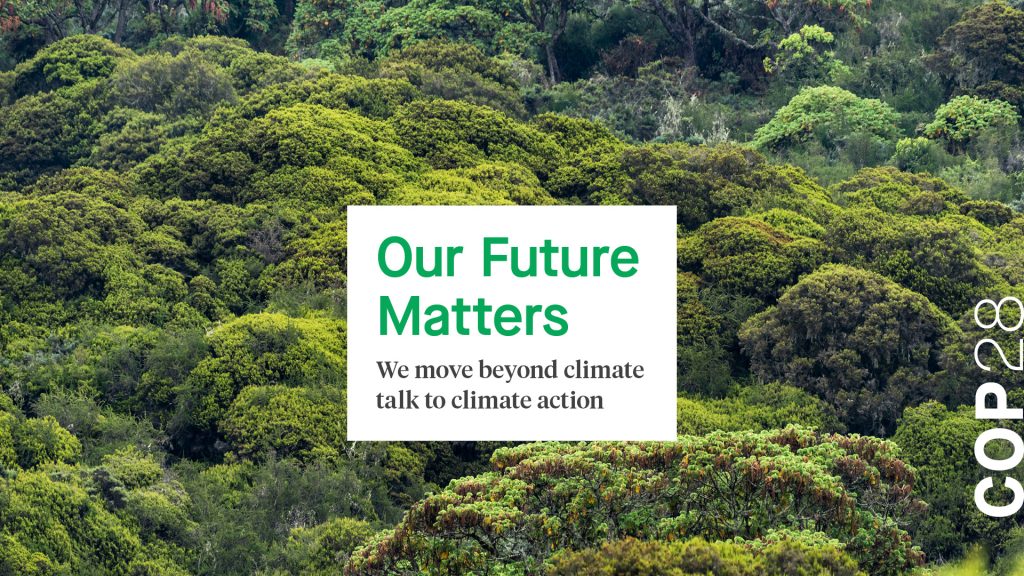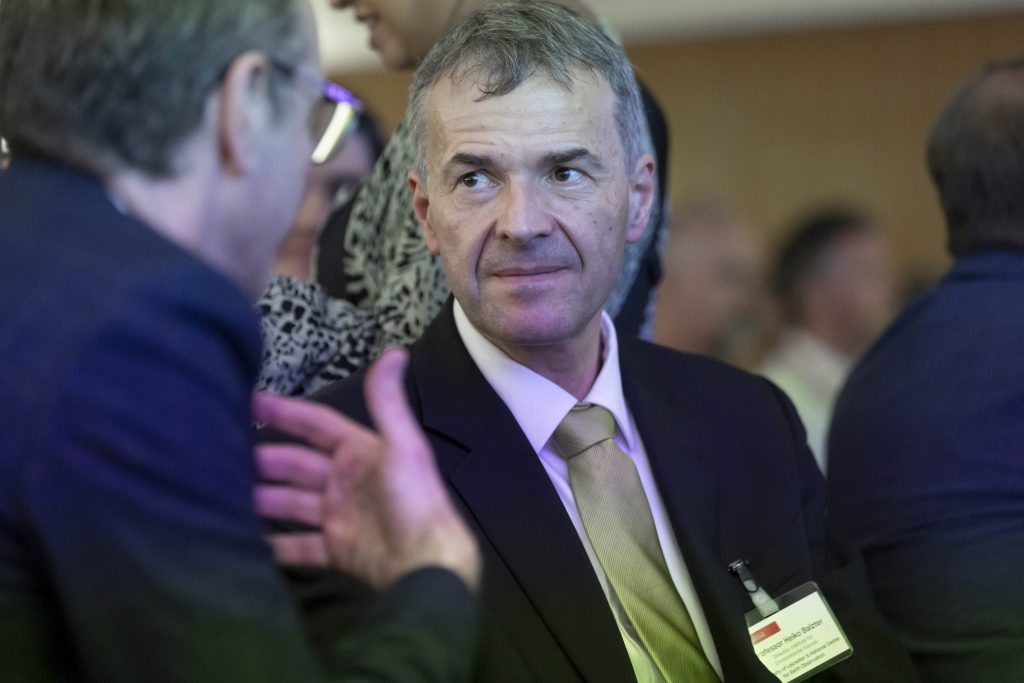Tackling the climate crisis from space: Leicester puts quality data at the forefront of COP28 agenda

Leicester scientists are bringing their research to the COP28 climate conference in Dubai, showcasing the vital role of space technology and data in tackling climate change.
Leicester scientists are bringing their research to the COP28 climate conference in Dubai, showcasing the vital role of space technology and data in tackling climate change.
The year’s biggest climate conference will be attended by three climate experts from the University of Leicester whose research is making significant contribution to the agenda through their work at Space Park Leicester and the National Centre for Earth Observation (NCEO).
The University of Leicester’s Professor Heiko Balzter, a research lead in NCEO, has been invited to join the panels of ‘Measuring Nature Positive’ on 9 December, discussing how the Kunming-Montreal Global Biodiversity Framework’s mission of ‘halting and reversing biodiversity loss by 2030’ may be achieved, and the role that landscapes can play in ‘Climate Repair’ on 10 December in the Higher Education Pavilion at COP28. He is also joining the panel of ‘The Power of Space to Protect & Restore Our Natural World’ on 10 December in the UK Pavilion at the invitation of the UK Government.
He will also join Dr Cristina Ruiz Villena, also from the National Centre for Earth Observation (NCEO), and Dr Harjinder Sembhi from Space Park Leicester in supporting the UK Space Agency’s collaborative action group, Space4Climate, who will be representing UK climate and space expertise from academia and industry. The PufferFish interactive globe on the Space4Climate stand features Earth Observation data from NCEO at the University of Leicester.
Dr Sembhi will talk about how Earth Observing satellites can help address global challenges and will be showcasing some of recent research on measuring methane emissions from space. She will also be attending the Climate Action Innovation Zone to learn how decision-makers are using innovative solutions for climate resilience.
Professor Balzter has recently published a paper in the journal Sustainability by the University’s Institute for Environmental Futures on the topic of Loss and Damage, based on their discussions. At COP27, government representatives committed to establishing a Loss and Damage to compensate low and middle income nations for the climate change impacts they suffer from with implementation of the fund left to further negotiations, which are taking place as part of the COP28 process.
The challenge of understanding the effects of climate change on humankind (and, hence, identifying the best response strategies) is interdisciplinary by its very nature, argues the paper. This challenge stems from the interconnection between many individual disciplines including (but certainly not limited to) geophysics, oceanography, biology, ecology, economics, sociology and psychology.
The paper highlights seven principles which the Loss and Damage Fund must consider in order to be impactful and effective:
1. Prioritisation
2. Integration
3. Partnership
4. Evidence-based decision-making
5. Capacity building
6. Monitoring and evaluation
7. Long-term planning
Professor Heiko Balzter from the University of Leicester said: “My biggest hope is that the world will agree how to establish the Loss and Damage fund that was agreed in principle at COP27 last year. Our paper highlights how evidence for losses and damages from climate change can be provided, how climate adaptation can be strengthened in low and middle-income countries, and how interdisciplinary understanding is needed to make the Fund effective.

“Scientific evidence of loss and damage must include geophysical, geochemical, biological, and socio-economic evidence because climate change impacts by their very nature will disrupt physical, biological, and socio-economic systems due to their interconnectedness. Types of evidence include climate impact assessments from observations and models, socio-economic models, and should adopt participatory approaches. It is important to include psychological and social damages in the assessments. Space data from Earth observation are an example of scientific evidence. Satellites can map flood damages, crop losses and other impacts of extreme weather events.”
Dr Cristina Ruiz Villena is one of 10 Early-Career Researchers awarded a UK Universities Climate Network (UUCN) scholarship to attend COP28. Dr Ruiz Villena said: “I would like to see stronger national commitments for emissions reductions, the operationalisation of the ‘Loss and Damage’ fund, more ambitious climate finance commitments, and clear, non-edulcorated language for the reports (e.g. ‘phase out’ of fossil fuels rather than ‘phase down’). I also hope that all parties involved remember that we are all in this together and nobody should be left behind.”
Dr Harjinder Sembhi from Space Park Leicester said: “I am looking forward to seeing what progress has been made since the global methane pledge was launched at COP26 in Glasgow, UK. In particular, what kind of methane actions different countries are taking to help cut anthropogenic methane emissions by at least 30 percent by 2030 (from 2020 levels).”
Professor John Remedios, Director of the National Centre for Earth Observation (NCEO), has been supporting the agenda for Earth Information Day Agenda, a mandated event during COP-28. The day provides scientific information to delegates to support a dialogue of the Parties for exchanging information on the state of the global climate system and developments in systematic observations which support the climate negotiations.
Professor Remedios said: “International agreement between nations is vital to build trust in systematic observations, which offer so much in terms of characterising the changes we have already seen in recent years and expect to see in the future. Satellite data for methane, forest carbon, temperature and fires already offer insight into ways in which we can respond to the climate crisis”.
- Space Park Leicester and the National Centre for Earth Observation are also marking COP28 with a series of events and competitions. The general public are invited to a night of community engagement and celebration at Space Park Leicester on 6 December, where visitors will embark on an unforgettable journey into the world of climate and space, delving into innovative solutions for a sustainable future. It will provide an opportunity to view the magnificent 3-metre globe loaned to Space Park Leicester by one of the world’s leading IT and business consulting firms, CGI.
- Anyone who works with Earth Observation data can enter their Earth image competition, with entries due by 29 November.
- ‘Loss and Damage from Climate Change: Knowledge Gaps and Interdisciplinary Approaches’ is published in Sustainability, DOI: 10.3390/su151511864 Link: https://doi.org/10.3390/su151511864
- ‘Evidence Synthesis towards a Holistic Landscape Decision Framework: Insight from the Landscape Decisions Programme’ is published in Land, DOI: 10.3390/land12081543 Link: https://www.mdpi.com/2073-445X/12/8/1543
- Find more content from the University of Leicester for COP28 at: https://le.ac.uk/research/sustaining-world


